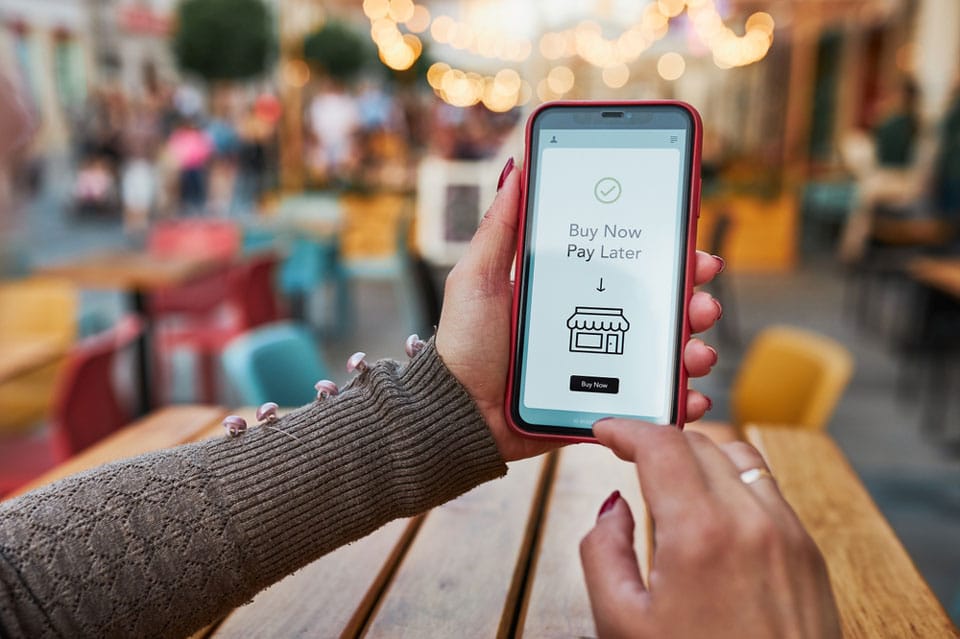How acquirers can make Buy Now, Pay Later (BNPL) available to small businesses?

Those involved in banking have already taken note of the incredible popularity of buy-now, pay-later (BNPL) schemes. In my career as an investor and fintech entrepreneur, I have invested a lot of time in studying the latest trends in the industry, and have observed that while BNPL used to be a niche for fintech startups, it has now gained mass appeal. The reason is quite clear: modern people prefer to invest money in their personal growth and health, and to try their hand at private investing. On the other hand, we all have limited resources; that’s why paying for something in instalments is a super-convenient and popular option.
Modern payment technologies and BNPL schemes provide consumers with almost instant access to funds, allowing them to live in the moment. In the past, getting a loan was time- and energy-consuming, as it required a lot of paperwork and an in-person visit to a bank. With BNPL, scoring is easy and instant, and payments are also instant thanks to the seamless work of payment service providers.
BNPL and other types of instalments are important for online stores, as they enable them to boost their sales and average ticket. Generally, one of the main reasons that merchants connect to payment gateways rather than selling goods for cash only is that accepting credit cards and BNPL increases consumer spending. A consumer pays only a fraction of the price immediately, while the BNPL financier pays the remaining amount by collecting it from the consumer later in instalments.
BNPL became mainstream due to fintech companies such as Sweden’s Klarna, which positioned BNPL as a disruptive alternative to bank loans and credit cards. The service is now especially popular among millennials for two reasons: first, because it’s considered to be fairer than loans since no interest is charged if payments are made on time, and second, because access to such financing is much easier compared with traditional bank products. All someone needs to do to use BNPL is to download an app from the provider.
When it comes to online stores, BNPL payments can be accepted once this method has been integrated into a store’s website or mobile app. However, large BNPL providers find it more profitable to work with more popular brands and typically don’t offer their services directly to small online stores. Similarly, it’s often not financially rewarding for big banks and large acquiring companies to serve SMEs.
Considering the costs associated with connecting to numerous banks, electronic wallet systems or third-party BNPL providers at once, smaller companies and startups could benefit from a different solution. Next-generation acquiring companies offer low rates, a user-friendly interface, and the ability to connect to the payment methods of one’s choice, making them ideal for companies that seek to keep their costs low and focus on growth.
At NJoy Payments, we are working to offer merchants built-in solutions so that they can connect to BNPL options from several fintech providers and increase their sales. Connecting small businesses to BNPL can be a profitable business strategy for growing acquiring startups.
Nevertheless, BNPL financiers have been facing some troubles recently. Valuations of technology companies, including fintech firms providing BNPL services, have plummeted. For example, the market leader, Klarna, lost more than 80% of its market value. The $39 billion that the owner of the US fintech service Square paid two years ago to acquire Afterpay, another major BNPL financier, now looks like a hefty price. Another once-promising BNPL company, Australia’s Zig, decided to wind down operations in 10 markets after its valuation plunged.
Initially, BNPL was a viable alternative to classic banking credit cards. Unlike cards, BNPL is interest-free. The merchant pays a commission of only about 2%–5% to a BNPL financier, whose service in exchange leads to more sales. Still, providing the option of paying in instalments requires a lot of money. It was easy to get when interest rates were low, the economy was growing, and valuations of fintech startups were surging. Unfortunately, that is currently not the case, and BNPL financiers have become more attentive to profitability. Klarna has expanded its offering to include classic banking products. The US BNPL company Affirm, which works with Amazon.com, charges low interest on its BNPL plans. BNPL financiers are now also developing joint interest-bearing products with banks. Overall, the differences between BNPL and loans are gradually blurring.
However, the balance of power between BNPL and loans is not critical for payment service providers working with small businesses. What we care about most at NJoy Payments is that we connect merchants to all the payment methods they deem necessary to boost sales. Debit and credit are already established, and BNPL has also become a must-have. With 10% penetration in European e-commerce, BNPL remains a popular choice among consumers.
Written by Anatoly Makeshin, founder of NJoy Payments.
Have you read?
Top 20 wealthiest Owners in American sports, 2023.
Report: Austria Citizenship by Investment Programme, 2023.
Report: Cambodia Citizenship by Investment Programme, 2023.
Report: Dominica Citizenship by Investment Programme, 2023.
Report: Egypt Citizenship by Investment Programme, 2023.
Bring the best of the CEOWORLD magazine's global journalism to audiences in the United States and around the world. - Add CEOWORLD magazine to your Google News feed.
Follow CEOWORLD magazine headlines on: Google News, LinkedIn, Twitter, and Facebook.
Copyright 2025 The CEOWORLD magazine. All rights reserved. This material (and any extract from it) must not be copied, redistributed or placed on any website, without CEOWORLD magazine' prior written consent. For media queries, please contact: info@ceoworld.biz











